Inside Louis Vuitton's Sports Strategy
LVMH has spent hundreds of millions of dollars on sports partnerships in the past year alone. Here's why.
Hi friends! Welcome back to SportsVerse, my twice-weekly newsletter that tells stories you can't find anywhere else about the intersection of sports, fashion, business, and culture. Powered by OffBall.
Louis Vuitton is rarely far from the news cycle in the world of sports these days.
The French luxury brand made headlines once again last week with the confirmation of its new long-term partnership with Spanish football super-club Real Madrid, bringing to an end the team’s previous clothing deal with Italian luxury brand Zegna.
Louis Vuitton will design formalwear and travel gear for the men’s and women’s teams (as well as the Real Madrid men’s basketball team) as part of the multi-year deal, which marks the first time it will work with a sports organisation in this way.
The deal makes sense. But it’s not particularly novel or surprising.
For several years, major teams — which now consider themselves brands in their own right — have brokered formalwear partnerships with major luxury fashion houses and explored one-off fashion collaborations to shake up their merch offerings. (Examples include PSG and Dior, Napoli and Armani, Roma and Fendi, China’s Women’s National Team and Prada.)
“There’s so much synergy between iconic fashion brands and football clubs. They’re huge cultural entities with so much history and heritage — like how fashion houses have their heritage tied to collections, football clubs have so much history tied to their kits, aesthetics and badges over time,” I told The Athletic today.
What is intriguing about the deal is the insight it gives into the sports strategy of Louis Vuitton and its parent company, LVMH. It’s also a sign of Real Madrid’s shifting ambitions in the fashion world. I’m here to unpack it all for you today.
“Victory Travels in Vuitton”
First, some context.
LVMH, the world’s largest luxury conglomerate, has increasingly used its extensive resources and influence to insert its brands into the world of professional sports — most notably: (1) its €150 million sponsorship of the 2024 Olympic Games; (2) the $1 billion it committed to a 10-year partnership with Formula 1. Louis Vuitton has been integral to this push.
Ahead of the Olympics last summer, Louis Vuitton unveiled its “Victory Travels in Vuitton” ethos, a reference to the luggage (the brand’s original specialism) and bespoke trophy trunks the house has made for specific sporting events such as the World Cup Final and the Monaco Grand Prix.
With Pharrell Williams at the helm as creative director of its menswear business, Vuitton has the perfect conduit between the worlds of luxury fashion, celebrity culture and sport. Athletes — many of whom already bought Louis Vuitton and wore their pieces in the tunnel before games or during their time off — began flocking (and being invited) to Louis Vuitton menswear shows in Paris like never before.
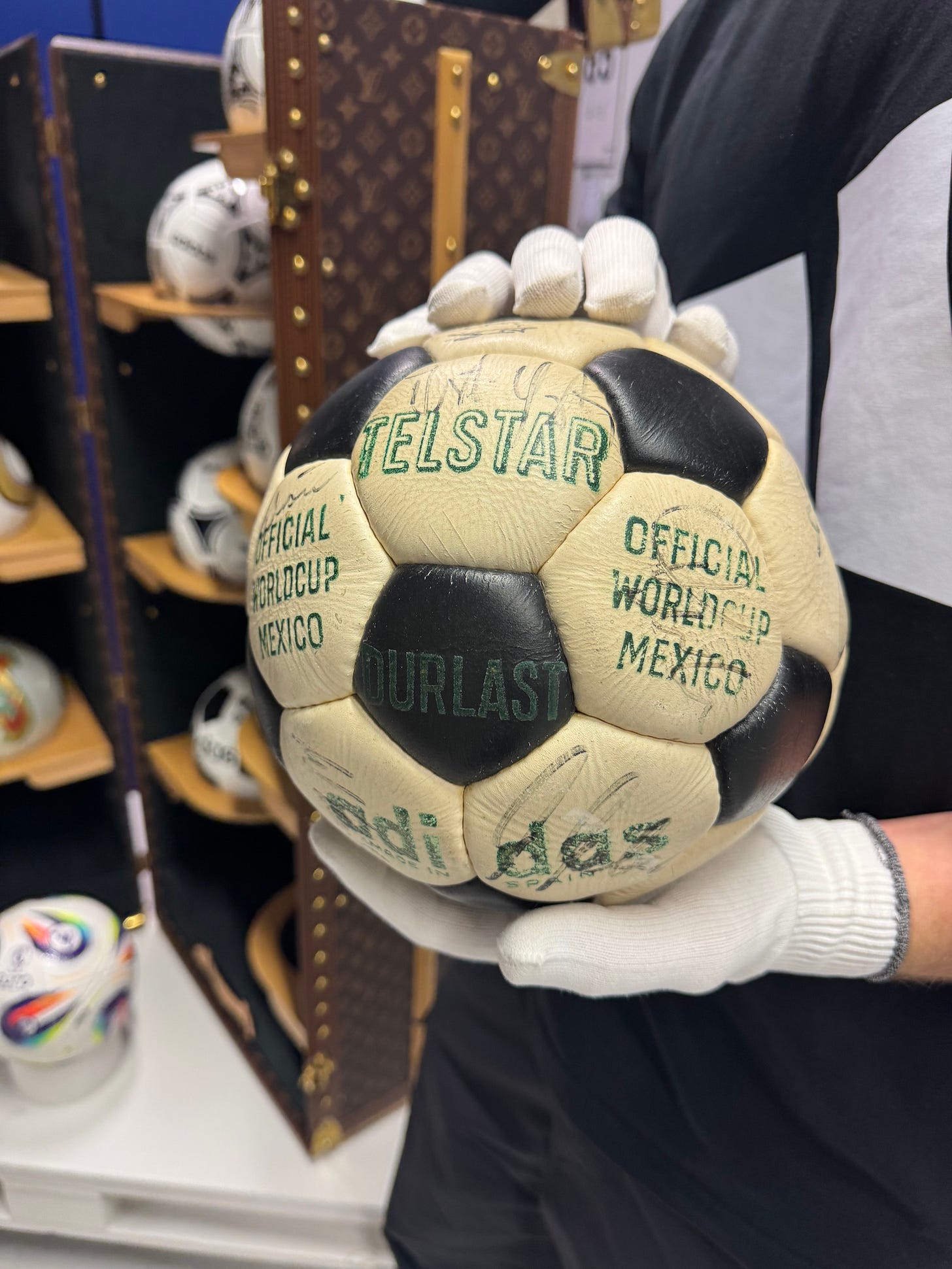
All of a sudden, it was no longer just prestigious medals and trophies travelling in Vuitton, but many of the world’s greatest athletes, too.
Louis Vuitton amassed a sizeable roster of individual athletes in recent years across a diverse range of sports. In the past 12 months alone, it has added NBA sensation Victor Wembanyama, Real Madrid’s Jude Bellingham and skateboarder Tyshawn Jones to its roster, which also includes recent French Open champion Carlos Alcaraz, French rugby star Antoine Dupont and French swimmer Leon Marchand, to name just a few. Vuitton has also frequently tapped iconic athletes like Roger Federer, Rafael Nadal and LeBron James for one-off campaigns.
Vuitton also expanded its reach to sports which align with its high-end clientele. For example, the brand returned to the America’s Cup yacht competition as a title sponsor for the 37th edition, which took place last fall.
Why Real Madrid?
Louis Vuitton and LVMH have the resources to broker the most valuable partnerships in world sports. Their mission is to find their counterparts in the world of sports which share their brand ethos and will be aligned with the messaging they seek to communicate. When it comes to football, there are few greater, more iconic names than Real Madrid, 15-time Champions League winners.
In addition to their sporting accolades, Madrid also possesses one of the most marketable and fashion-forward teams in world football right now. Their squad is full of young fashion lovers who also happen to be some of the best football players on Planet Earth.
To name just a few, the Real Madrid fashion contingent includes Jude Bellingham (already a Vuitton ambassador), Trent Alexander-Arnold (who attended Pharrell’s debut Vuitton show in Paris last June), Kylian Mbappé (an ambassador for Dior, another LVMH brand), and Eduardo Camavinga (who has walked for Balenciaga in a Paris Fashion Week runway show and also featured in campaigns for London-based streetwear brand Corteiz).
When brands seek to justify spending big bucks on splashy sports team sponsorship, this is exactly what they’re looking for — global superstar athletes to be seen wearing their products by the billions of fans around the world who follow their every move.
Partnering with Madrid will bring valuable exposure on social media, too.
Mbappé has 124 million Instagram followers, Bellingham has 40 million, and Alexander Arnold has 14 million. Madrid’s main Instagram account alone has 176 million. By comparison, Louis Vuitton’s account has 56 million followers. This partnership will allow the brand to reach audiences it never could hope to speak to via its own channels, on an unparalleled scale.
Up until this point, Louis Vuitton had invested billions of sponsorship dollars by signing deals with the world’s most prestigious athletes and sports competitions. What was missing, was a direct relationship with a major team to tie it all together. And who better to fill that role than the most successful football club of all time, Los Blancos?
“Now, by outfitting all the club’s players and representatives for major travel and events, this unprecedented collaboration confirms now more than ever that ‘Victory Travels in Louis Vuitton,’” the brand said in a statement a few days ago.
Why Sports?
It’s not unreasonable to wonder why a luxury brand known for its leather goods should care about sport at all, let alone invest billions of sponsorship dollars in it.
After all, it wasn’t so long ago that sports (particularly ones like football and basketball) and athletes (save for a few exceptions) were seen as antithetical to the very essence of luxury and high fashion.
But the luxury market, which boomed during the pandemic, has undergone some harder times of late. People are less enamoured by fancy luxury brands and more critical (generally speaking) of the eye-watering prices these companies charge for products which, quite frankly, cost a fraction of the retail price to manufacture.
This shifting consumer sentiment has begun to impact sales of major luxury holding companies like LVMH and its rival Kering, the owner of brands including Gucci and Balenciaga. LVMH’s stock is down 30 percent in the past year. But dry your eyes, the group still generated revenue of €84.7 billion in 2024 — no one is going hungry there just yet.
Regardless, the likes of LVMH have realised in the last few years that to continue growing, their brands need to show up in relevant cultural arenas. And there is no greater cultural realm to play in as a brand these days than sports, given the emotion, passion, drama, chaos, and limitless storytelling opportunities generated every single day.
The fact that fashion brands in the past had largely ignored sports meant that they were missing out on marketing to millions of potential consumers worldwide. But that has now changed. Sources tell me there are dedicated employees at Louis Vuitton who solely focus on the brand’s partnerships in sports — which would have been unheard of not long ago.
Louis Vuitton, as indicated by the (not so) self-effacing press release it sent out announcing the tie-up with Real Madrid last week, can’t stop talking about its relationship with sports:
“As a partner of the greatest sporting events of our era – from the Paris 2024 Olympic and Paralympic Games to the Formula 1 World Championship, the House has already left its illustrious mark on the world of elite sports by designing and crafting unique Trophy Trunks that celebrate the winners of the most prestigious international competitions.”
Next season will be an interesting one to follow for those who care about crossovers between fashion and sports. Paris FC, now owned by the Arnault family (which also controls LVMH), will compete in Ligue 1, the top division of French football, following their recent promotion. Partnering with sports teams is one thing, but owning one is another beast altogether, and I’ll be following closely to see how LVMH uses this opportunity to reach its tentacles further into professional sports.
But more on that another day.
What I’m Reading on Substack This Week
That’s all for today, friends. Thanks for coming along for the ride.
See you next time,
DYM


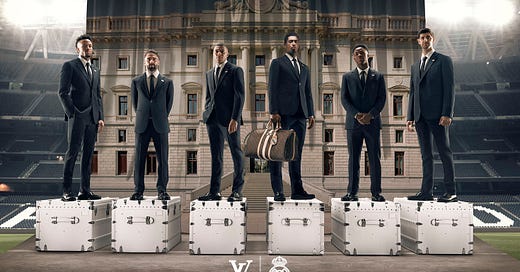



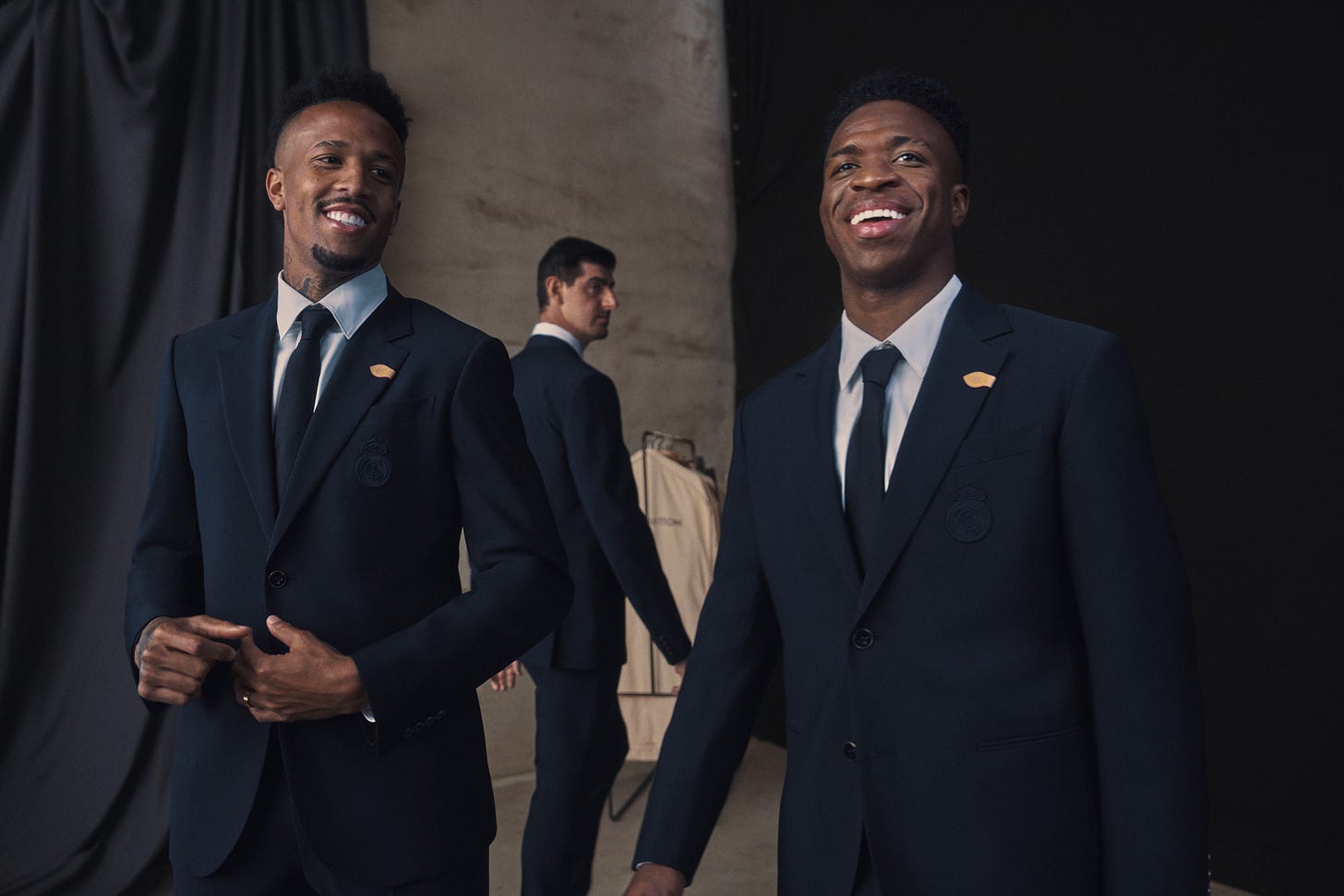
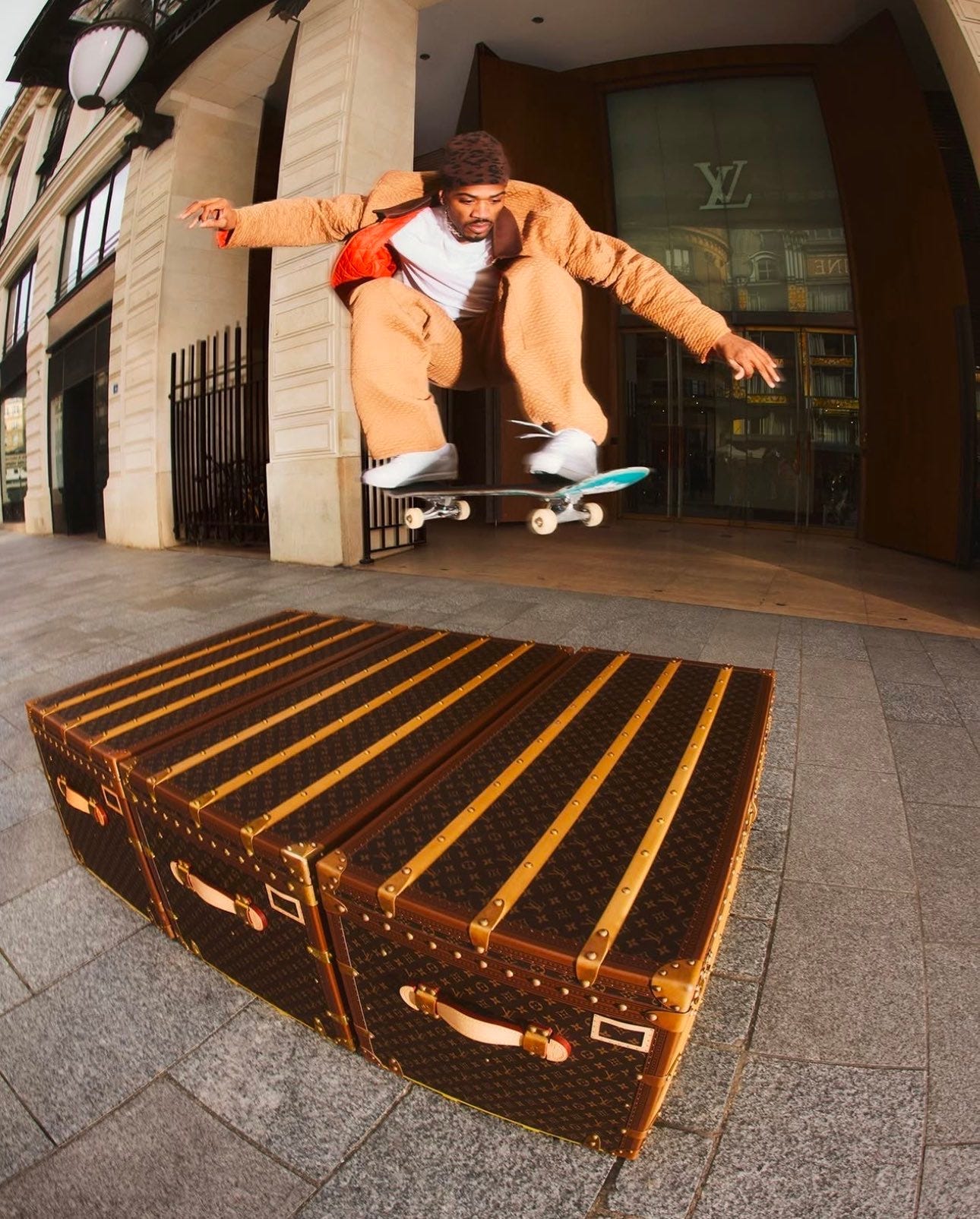
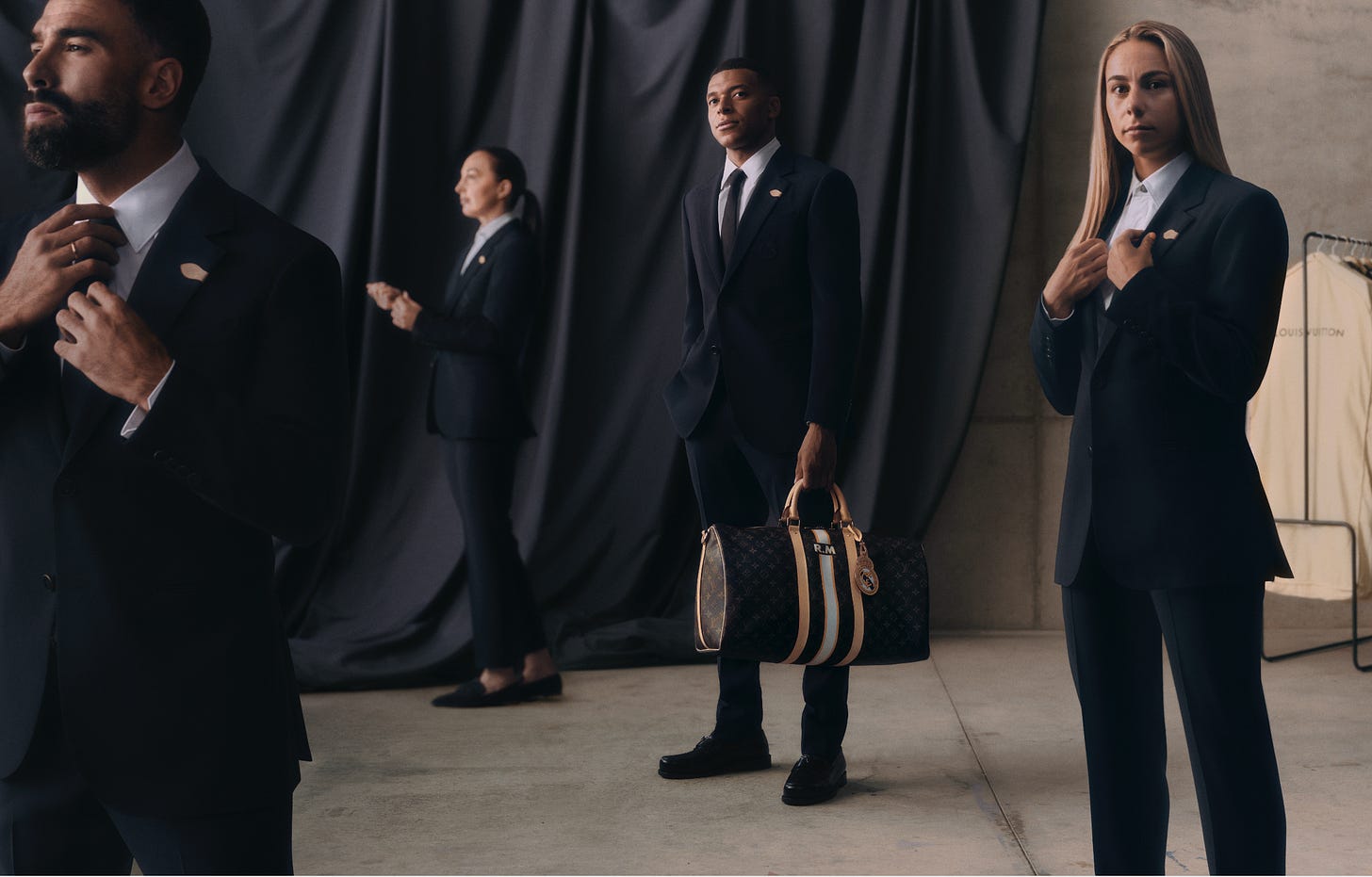
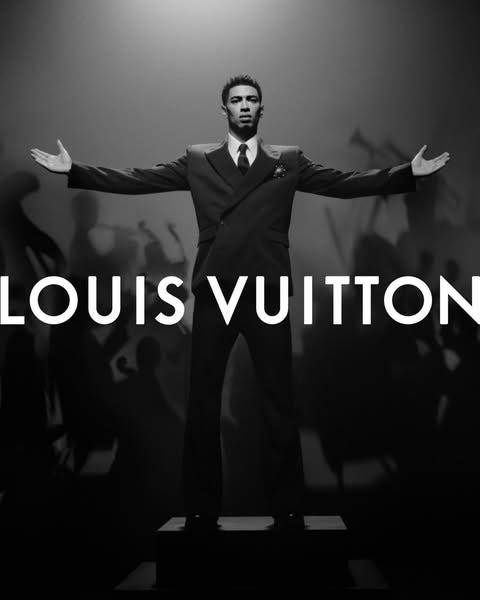


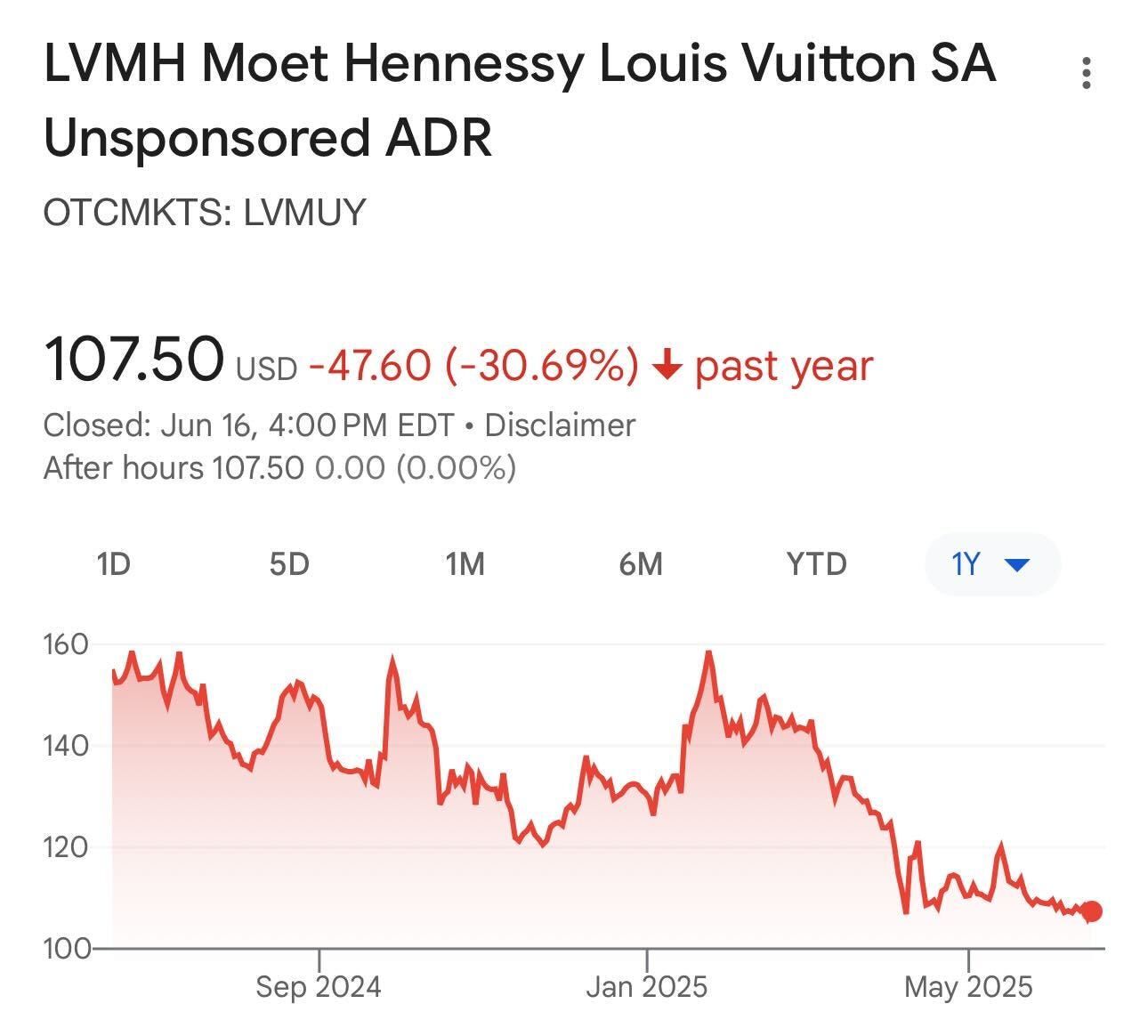
Great read! Curious if you think these brands might be overlooking the momentum around women’s sports and female athletes? There seems to be so much untapped potential, both in terms of meaningful partnerships and being part of the growth story.